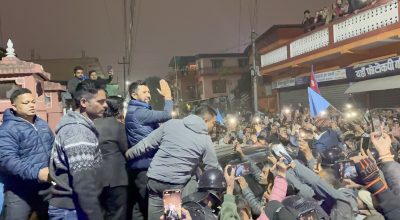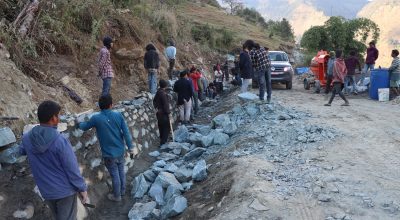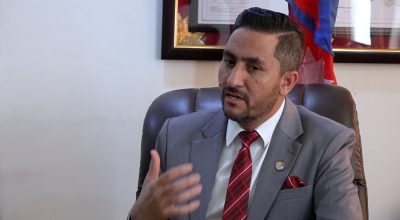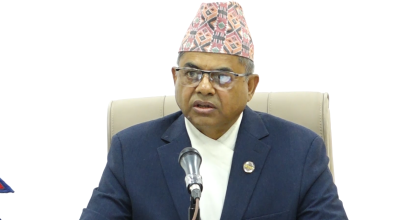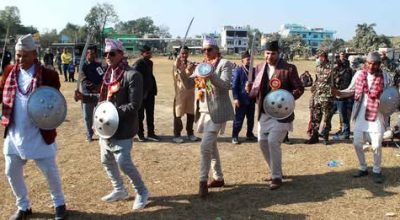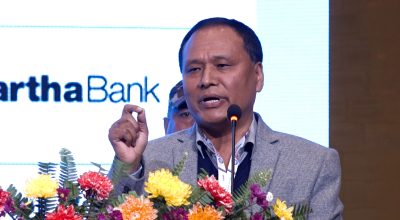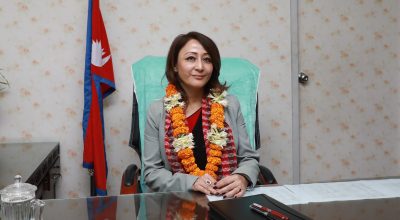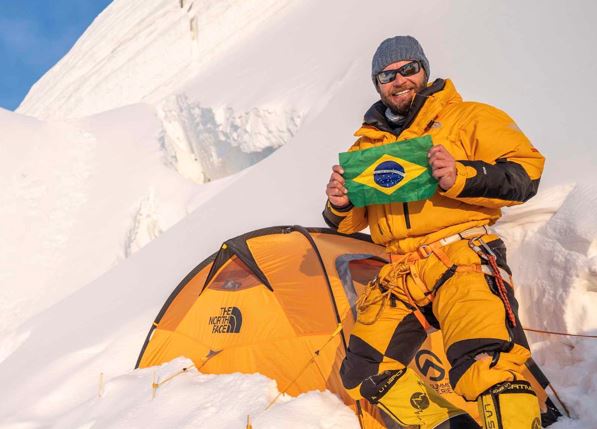
Pritam Bhattarai
Kathmandu, Oct 19: Adventure is sometimes criticised as the pursuit of privileged people to waste time. However, for Moeses Fiamoncini, a Brazilian climber, it holds a purpose besides recreational activities. Fiamoncini wants to break free of life’s limitations of his own self immersing in the beauty of the mountains.
This passion for the mountains has made him push for the successful summits of eight peaks above 8000m setting records. He has made history as the first Brazilian to climb Dhaulagiri and the true summit of Manaslu. He is also the Brazilian to conquer most summits of peaks above 8000m as he has scaled seven mountains without supplemental oxygen and Mt Everest with oxygen.
Brought up in the family and in the neighbourhood, none from adventure background, his characters of thrill-seeking and adventurism may have sprouted in him since childhood, and this reflected when he climbed a small hill near his house in Parana, Brazil at the age of 12, realising that he could go beyond the horizon he saw at that time and become an explorer.
“It was an urge, a different kind of urge. At that time, I felt I had a bit of accomplishments upon reaching the top of that hill. But it was not an end but the beginning for me to go beyond the horizon and explore the world,” shares the 44-year-old climber recalling his childhood. The urge became so stronger when he reached the point that he left home for exploring the world at the age of 29. “I was not satisfied with my life at work or with friends. It was a kind of mundane life I was living. It maybe because my search was different. I wanted to be an explorer,” says the businessperson, who runs a trekking company in his home country.
Being tempted to chase his childhood dreams, he ventured out to explore the world at 29 leaving behind everything he had. At that time, he did know what it requires to travel, preparations or things. He was naïve but ready to travel. What he knew that he had to explore himself and the entire world. His first travelled country was Portugal where he stayed for six years meeting people from different religion, culture, ethnicity and race. He got the opportunity to learn a lot from these people and take challenges in life. Thereafter his next destination was Spain where he spent a few weeks.
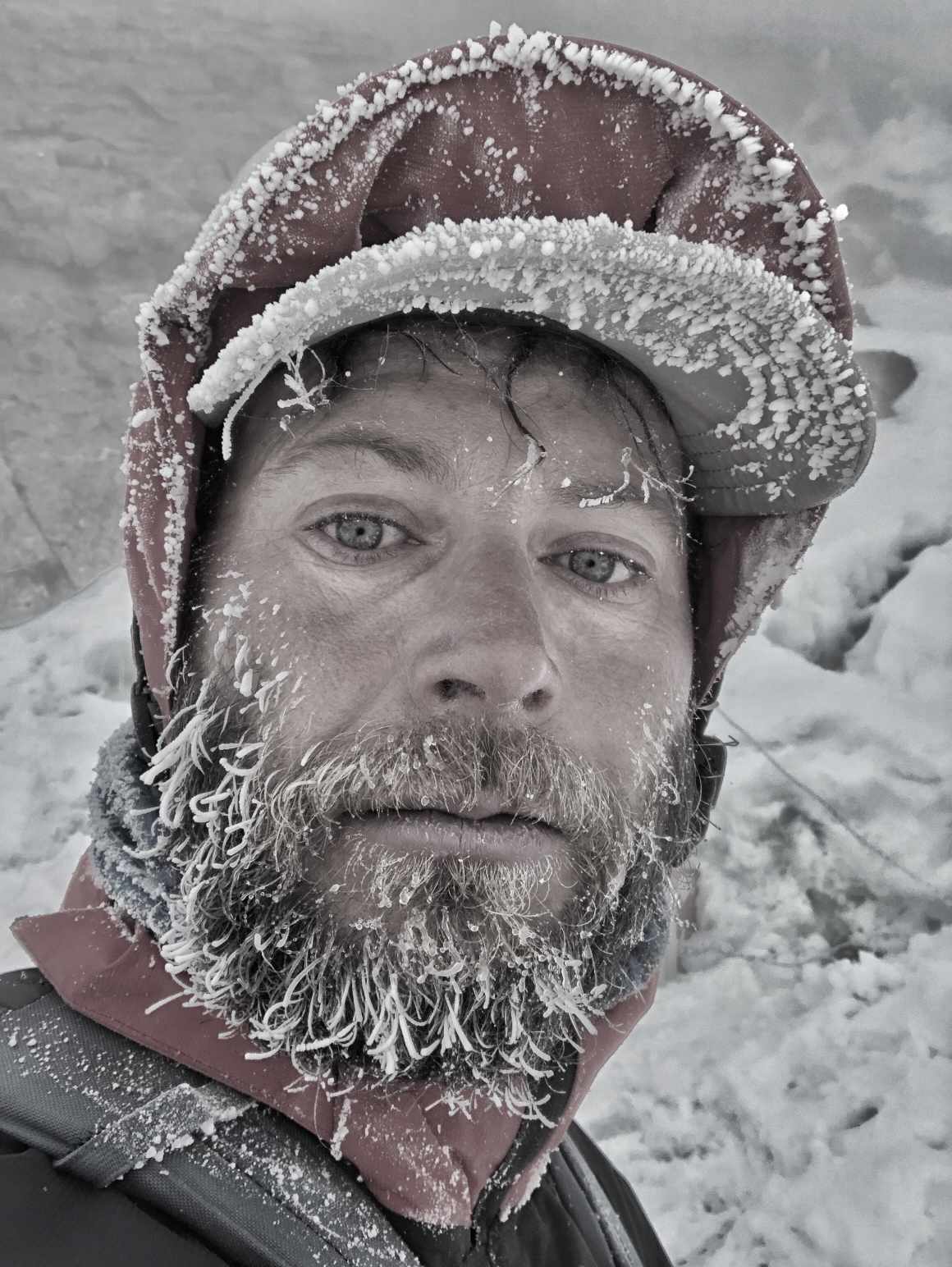
This way, he travelled over 80 countries including many countries in the South and North Americas, South Asia and South Africa. His first feat of conquering a mountain took place in 2018, which he described as the greatest achievement of his life. He climbed Mansalu (8163m), the world’s eighth highest peak located in the west-central part of Nepal.
“It felt my childhood dream really came true when I stood atop the peak of Manaslu. My vivid memory of the day when I reached the summit always remains with me,” he says nostalgically.
He was undeterred thereafter. He continued climbing one after another mountain. He scaled Nanga Parbat (8126m), the world’s ninth highest peak, in 2019. The same year, he climbed K2 (8611m), the second highest peak on earth. His other successful summits are Broad Peak (8,051m), the world’s 12th highest peak, Gasherbrum II (8035m), the world’s 13th highest mountain, Gasherbrum I (8080m), the 11th highest peak on earth, Manaslu in 2023, Dhaulagiri (8167m), the world’s seventh highest peak and Everest (8848.86m), the world’s highest peak. He conquered all the mountains without supplemental oxygen except Everest.
Behind success, people have many hard works, sacrifice, dedication, perseverance, challenges and undoubtedly failure. Of course, Fiamoncini has faced many failures to reach the finish line to get accomplishments. He attempted Annapurna I (8091m), the world’s tenth highest mountain, three times but without success. Similarly, he unsuccessfully attempted Dhaulagiri and Manaslu two times each. His attempt of scaling Lhotse (8516m), the world’s fourth highest mountain, could not be realised.
These failures did not deter him however. “Failure has made me more determined and composed with my aim. I want to explore more and more for myself. I want to free myself of my limitations,” he says.
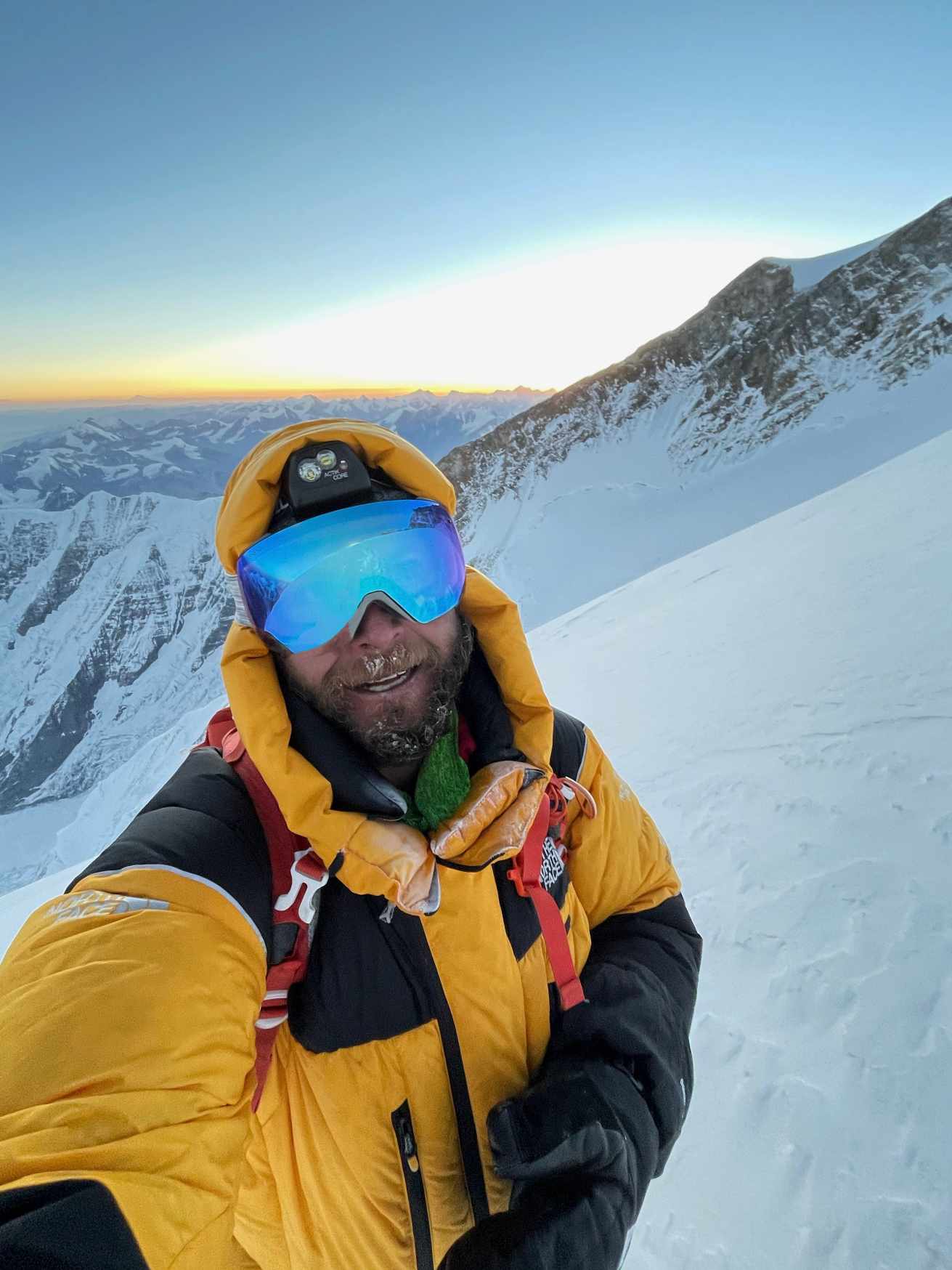
His next goal is to conquer all 14th peak of the world above 8000m. “I will achieve this goal within 2025.” Fiamoncini does not have any permanent home of his own. His home is where he stays. Sometimes, he sleeps in the lap of the mountains, other times in monasteries or hills. Also the sportsman, he prefers travelling, reading and practicing yoga and meditation. Much aware about health, he likes to eat healthy food and live an active and healthy lifestyle. “This planet is my home and I want to go deeper into nature,” he says.
His near-death experience
On his Dhauligiri expedition in 2019, Fiamoncini had undergone a near-death experience. When he crossed a rock band covered in 30 centimetres snow near the summit, he slid and fell 20 metres. In that accident, he got his helmet broken, and he was covered in snow. “I almost died of hypothermia,” he says of that accident, adding, “Because of an accident at 8120m, I could not reach atop the mountain. I was only 47m away to summit my fifth 8000m peak.”
Despite that horrible accident, he was enticed to continue his journey to the summit. But it was bad weather that stopped him. “The temperature was minus 27 degrees and the wind speed was 55 km/h, which left me no choice but to return to the Camp 3 to save myself,” he shares.
It took him nine hours to get to the camp and three days to reach the Base Camp. Thereafter he was airlifted to Kathmandu by a rescue helicopter. He suffered frostbites at hands and feet, he says.
Eyewitness of tragic accident on Annapurna
He was an eyewitness of the tragic accident on Annapurna I on April 17, 2023 wherein Indian climber Anurag Maloo fell into a crevasse during his descent of the summit. Fiamoncini, who attempted the peak singlehandedly, was descending alongside a Sherpa and Maloo when Maloo met with that accident.
On his descent to Camp 2 after his failed attempt of the mountain without supplemental oxygen, Maloo by mistake used a short rope leading him to hit a hard ice and fall into the crevasse. “I shouted at him to stop, but he did not hear. I was horrifying seeing him fall into the crevasse. I was the first person who checked the rope used by Maloo,” he says. Fiamoncini and Sherpa, who were later joined by five or six other climbers in helping find Maloo, spent almost two hours there searching for him, but in vain. Then they returned to Camp 2. After almost four days, a team formed to rescue Maloo, rescued him in critical condition. Maloo is now recovering in his home country, India.
He loses his five friends to mountains
He has lost his five friends, who he says were dearest to him, to mountains. He befriended them while attempting Dhaulagiri. His five friends, who died on mountains, were Spanish Sergi Mingote, Chilean Juan Pablo Mohr, Pakistani Ali Sadpara, Bulgarian Atanas Skatov and Greek Antonios Sykaris. Mingote, Mohr, Sadpara and Skatov died on K2 in 2021, and Sykaris on Dhaulagiri in 2022.
He was so close with them that he has had some memories with some of the five climbers in attempting Dhaulagiri: I remember near the summit I almost gave up again, many thoughts dominated my mind, but I could hear the voice of Sergi and Juan Pablo telling me that I could summit and I decided to go when their voice motivated me saying “Dale Moe….Dale! Es fuerte…a la cumber! (We are here with you!).
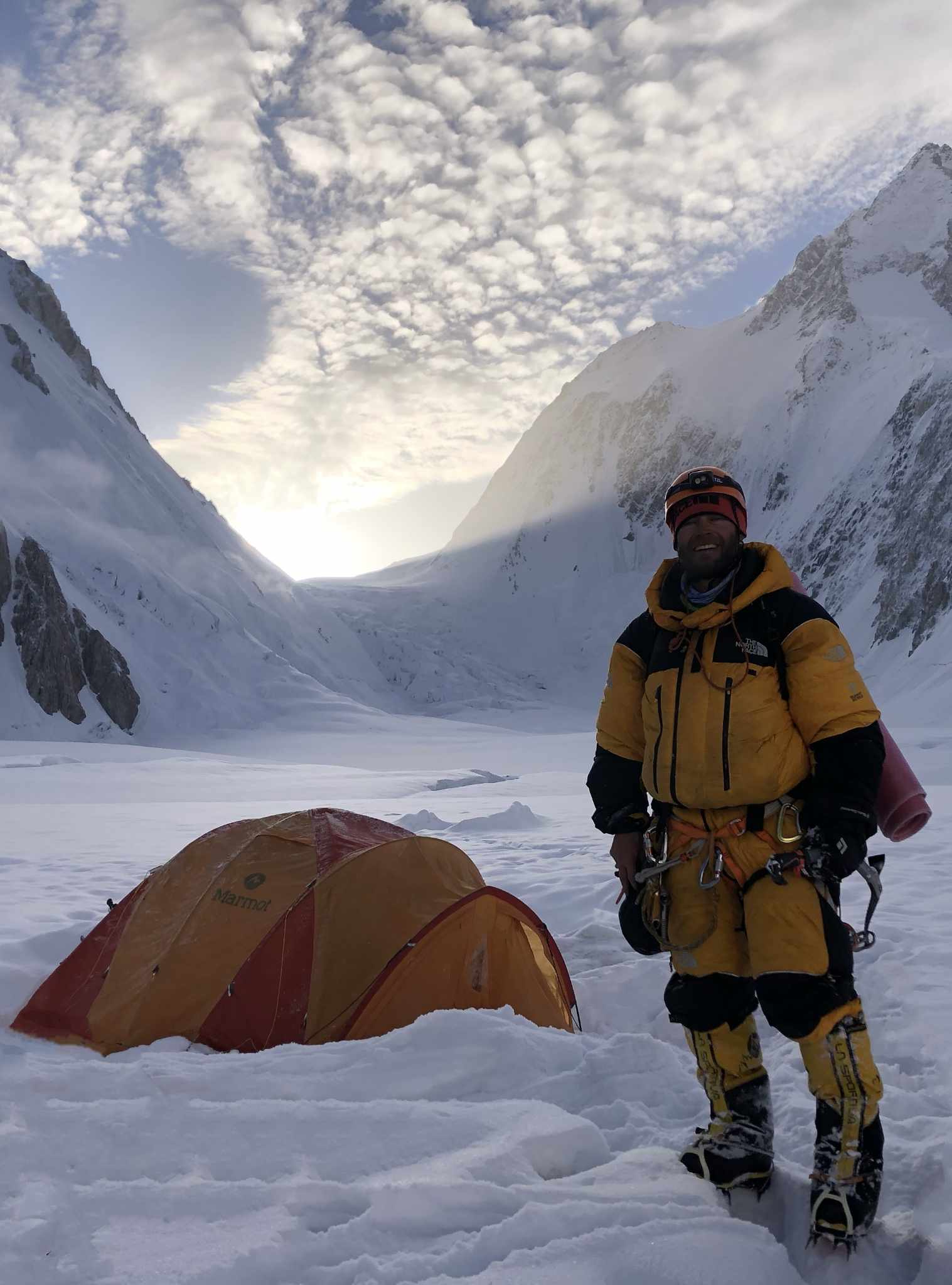
That was the true friendship. “The summit I dedicated in memory of those great climbers who lost their lives in pursuit of their dreams,” he said to himself after summiting Dhaulagiri in 2023.
His accounts of Manaslu expedition
I return to Manaslu for its true summit. Manaslu is my first mountain above 8000m which I climbed in 2018 together with the renowned Spanish climber Sergi Mingote who unfortunately passed away in 2021 on K2.
At that time, I had thought I had reached the true summit where everyone reached. But in 2021 a drone photo proved what everyone suspected, and the debate seems to have ended. Now, the mountaineering community agrees that climbers must reach the actual summit to complete the ascent.
This Wednesday on 09/20/2023 at 06:21 local time (Nepal), I reach the summit of Manaslu without a personal local guide (unassisted) and without the use of supplemental oxygen.
The night was beautiful, with a little bit of wind until 2 am, then it calmed down. Temperatures never went above minus 21 degrees I could not stop, I could not freeze, I did only few stops just to hydrate.
I left camp 3 which is at a height of 6670 metres at 6:15 pm and reached the summit (8163m) at 6:21 am, there was 1487 metres of ascent in 12 hours. I accompanied a group of clients with Sherpas who had bottled oxygen, and I thought I could push too hard on the way up, I thought that is why it took me another eight hours to get down, which I could have done in five hours. I arrived at camp 3 where I slept one night, and the next day I went down to the village of Samagaun which is at an altitude of 3600 metres, after crossing the dead zone, how good it was to be in a place with lots of oxygen, green vegetation and trees everywhere.
His accounts of Dhaulagiri expedition
The summit of Dhaulagiri was more challenging, we arrived at the Base Camp, and then went straight to camp 2, we arrived at camp 2 at 7 pm, and after setting up my small tent, I fell asleep without eating so much. On the 27/09, I rested in camp 2 and on the 28th , I decided not to go to camp 3 with tent, gas, food, sleeping bag, and I decided to save energy and leave straight from the lower camp 2 which was at a height of 6260 metres to the summit, it was more than 1800 metres of elevation for the summit push.
I left camp 2 at 4 pm on the 28th and returned at 6:30 pm the next day, 29/09. It took 26:30 minutes of climbing on this third attempt on the seventh highest mountain in the world.
In 2019, I arrived. Due to an accident at 8120 metres, I was unable to reach the summit of Dhaulagiri. I only had 47 metres left to achieve my fifth eight thousanders. As I crossed a rock band covered in 30 centimetres of snow near the summit, I slipped and fell 20 metres. My helmet was broken and my overalls, gloves and shoes were full of snow. I almost died of hypothermia. It is because I was on the way without a Sherpa and bottled oxygen.
In this climb, it was not the physical part that I chose so much, but the psychological party. When I was very close to the summit where the accident happened, I started to have a lot of thoughts about the events that had occurred, and at a moment I started to feel a very strong sadness in my chest. These were memories of the autumn 2019 expedition. I started to remember that dear friends were no longer there. That season, Sergi Mingote, Juan Pablo Mohr, Ali Sadpara, Atanas Skatov and Antonios Sykaris were at the Base Camp with me. It was five friends who were no longer today.
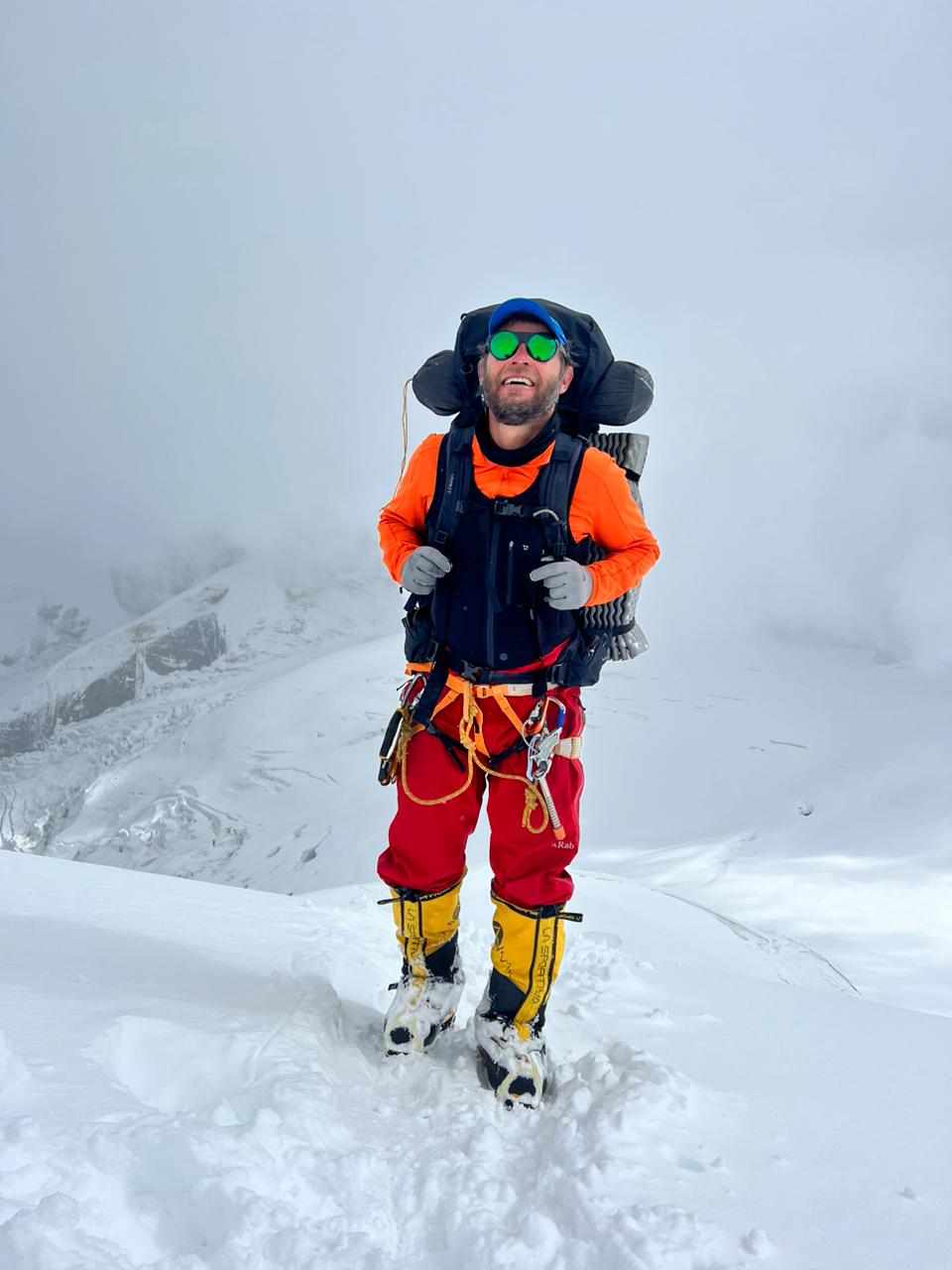
I remember near the summit I almost gave up again, many thoughts dominated my mind, but I could hear the voice of Sergi and Juan Pablo telling me that I could summit, and I decided to go when they voice motivated me saying “Dale Moe….Dale! Es fuerte…a la cumber! (we are here with you! At that moment with a lot of tears in my eyes I started again full of certainty that both of them were there with me until the summit! When I passed the couluir I felt down in my knee and said thank you.
The summit I dedicated in memory of those great climbers who lost their lives in pursuit of their dreams.
Spanish Sergi Mingote, Chilean Juan Pablo Mohr, Pakistani Ali Sadpara, Bulgarian Atanas Skatov and Greek Antonios Sykaris. All of you guys always will be living in my memory. RSS





